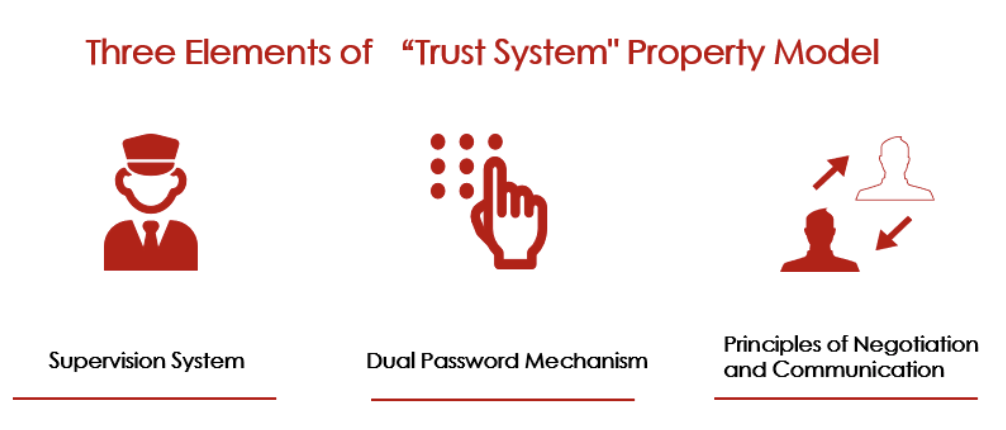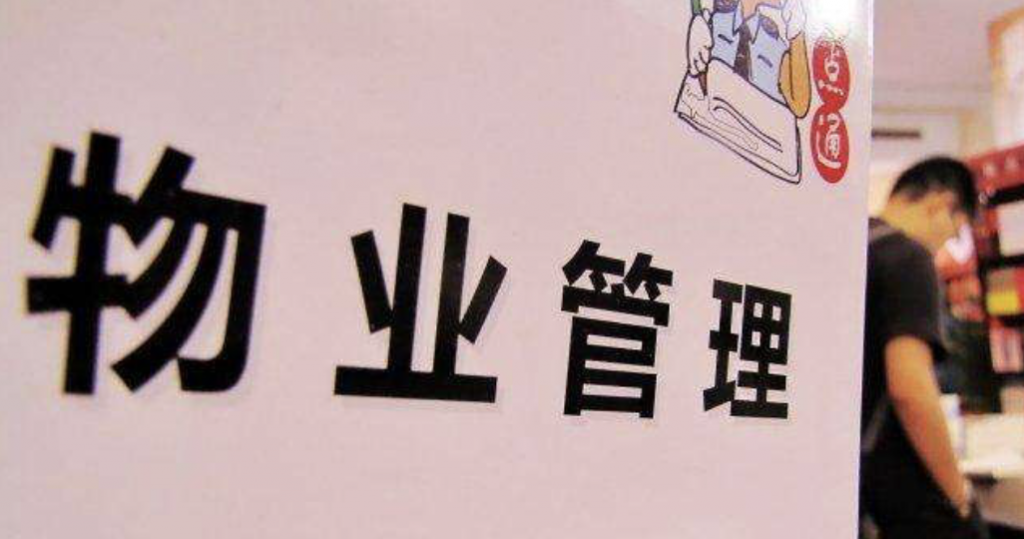How property management company “move toward lightness” in community governance
Community property is not only directly related to the quality of life of community residents, but also plays an active role in community governance. According to statistics, by the end of 2017, there are more than 110,000 property management companies in China and serve nearly 700 million people.
However, what we hear more often are the complaints of property owners, such as “unauthorized charges”, “poor service attitude”, “inaction in case of problems”, “non-transparent fee income and expenditure”, etc. the root cause is that the property owners and the property managers are playing a “zero-sum” game of “you pay property fees, I make money from property fees”, and even in many communities without property committees, the “manager” may usurp the throne as “the owner”. How can the two sides, whose fundamental interests are antagonistic, trust each other, and build a beautiful home together?
Therefore, in essence, the contradiction between property owners and managers is a fundamental contradicted interest at the community level. Once the problems of interests and identity are solved, the two sides of the contradiction can become “one family” to work together for community governance, and let the adverse force become joined forces.
In recent years, a new type of property service mode has emerged, named “trust system” property service mode. This mode takes “Trust Law” and “Property Law” as a legal basis and uses a trust contract to restrict property management companies. It is expected that the identity of “managers” and “owners” will be clearly defined, and their interests will be sort outed, so that property management companies can transform from the “complained” party into a new force in community governance, so move toward the light.

Let’s start with a case study:
Community X was fully resided in 2005 with over 2,400 households,10,000 residents. In 2007, given the increasing dispute between residents and management companies, the community committee held a meeting to collect resident’s opinions. In the end, more than half of the residents agreed to change the management company. Since then, a new management company came in and implemented trust property management. The property fee, “property maintenance fund”, was collected. It established an independent bank account. The community committee and all resident can supervise, while the management company could only charge 6% remuneration. In the end, the property fee decreased from 2.5 yuan to 2.2 yuan, and the parking fee was decreased by half. In addition, under the new property management mode, it also increased the revenue from parking lots on the ground, building advertisements, etc.
More importantly, since the new trust mode property management company, it realized community governance step by step. Firstly, the management company develops a detail financial budget, discloses monthly income, and supervised by a community committee. The transparent operation turned the relationship between resident and management company from untrustworthy into trustworthy. Secondly, the revenue can be used in public Infrastructure, or residents can use it supplement fees or even incentive for management company.
From this case, we can see that the “trust mode” property service model contains three core elements to ensure the management company moves toward lightness.
Firstly, Supervision System. In the “trust mode”, the owner convention or resident committee is the trustor, the property management company is the trustee, and all residents are the beneficiaries. The community can introduce the two committees or other social organizations as “supervisors” to represent the interests of the resident. They need to fully understand the community affairs, supervise the property management, and help the residents to protect their rights. When it is necessary to protect the rights, it will obtain authorization without owner convention.
Secondly, Dual Password Mechanism. The property fee was preserved in a dual password account. The management company withdraws funds and remuneration with a password. The resident can use another password to query the account cash flow, and they can check, copy, or copy information at any time, even each financial voucher.
Thirdly, Principles of Negotiation and Communication. The property management company needs to set the service standard and budget with proprietors in advance. Within the budget, expenditure can be directly extracted from the “dual password” account, while the expenditure out of budget can only be withdrawn from the account after being approved by residents. Generally, the property fee is a certain proportion of the total property management expenditure or the total property fee revenue, which is determined by the management company and resident.

Chengdu is leading the pathway of community governance. From the current practice, three types of property management companies recognize the value of the trust property management model and proactive transform its management system.
Firstly, property management companies are on the verge of the deficit. Because the trust mode can bring stable remuneration (6%~10%). Some property management companies reach an agreement with residents that they can improve the public benefits through their own resources, then they will earn additional remuneration. Because proprietors prefer to openness and transparency and dislike the secret operations under the complete rationing system, property companies can ” remuneration” the revenue boldly.
Secondly, a management company with little value or interest. The property management company yet has a certain income, but still faces issues of old house maintaining, and the property fee is difficult to rise. There is a potential risk of loss in the future. The root cause is that the former service package model does not develop the trust of the resident and the management company, and the resident is not willing to increase the property fees. Meanwhile, under the trust system, transparent accounting is helpful to reconstruct trust relationships. The property perhaps obtains the consent of residents again, and the property fee can be increased appropriately.
Thirdly, the management company regards the trust model as a development strategy. Under the new model, the income from property originates from the market fair remuneration. Other income of remuneration was used to serve the residents’ interests to obtain a good reputation and extend the service contract. Correspondingly, a good reputation can also help property management company enters more communities. The trust model breaks the conflict of interests between property management and residents/ it can also unify the increasing shareholders’ interests and the maximized residents ‘ interests. Thus, it provides a new way for the sustainable development of property companies, furthermore, it empowers property management companies to engage in community governance.

In May 2020, the 13th National People’s Congress passed the “civil code of the people’s Republic of China”. It clearly stated that property management company should protect the residents’ rights and interests, and respect the decision-making power of maintenance funds and management regulations, etc. Meanwhile, property companies should give back the public revenue to residents after it deducts reasonable costs. These regulations provide specific behavior guidance for property companies to improve community management services.
“Trust model” property management service will be a strategic transformation for property management companies. However, how property management companies introduce the trust model to serve the community still face problems of low awareness of residents and less attention from the government. In the future, it is necessary for multiple players to jointly explore the practical value of this mode. Moreover, we also advocate more communities and property management companies to try diversified pathways with their own conditions and satisfy the needs of a better life and community governance.
